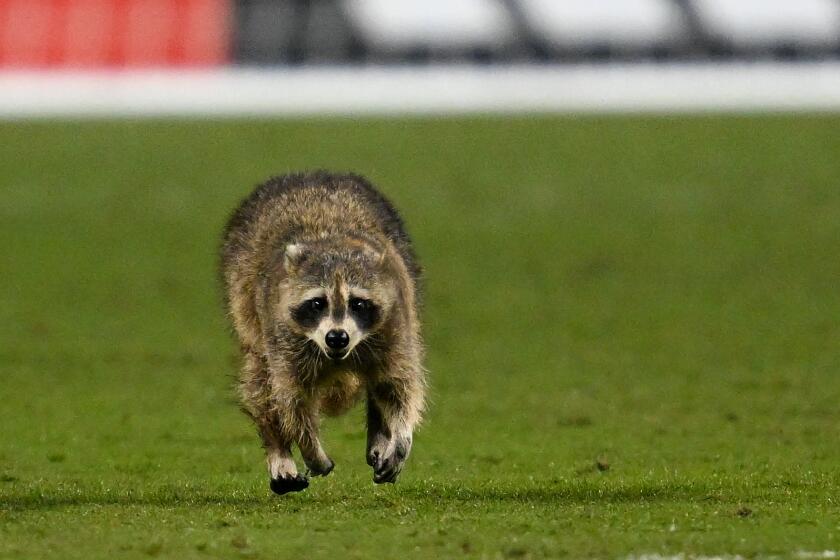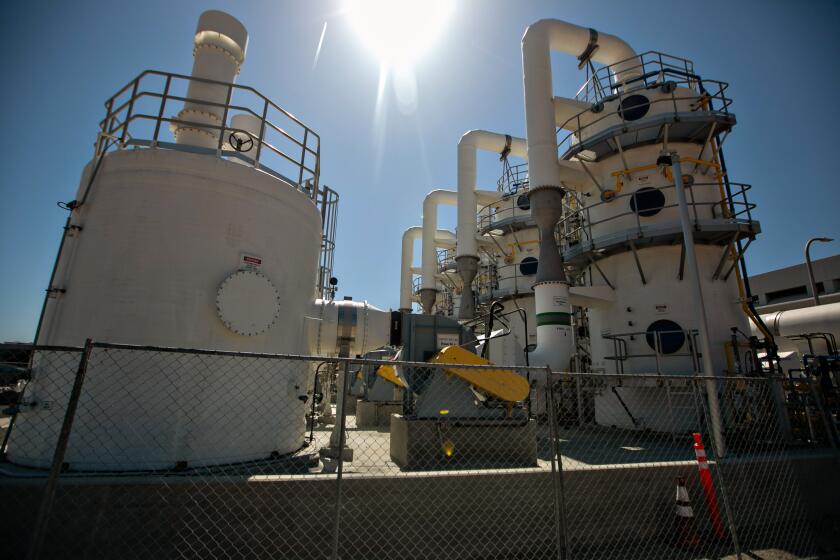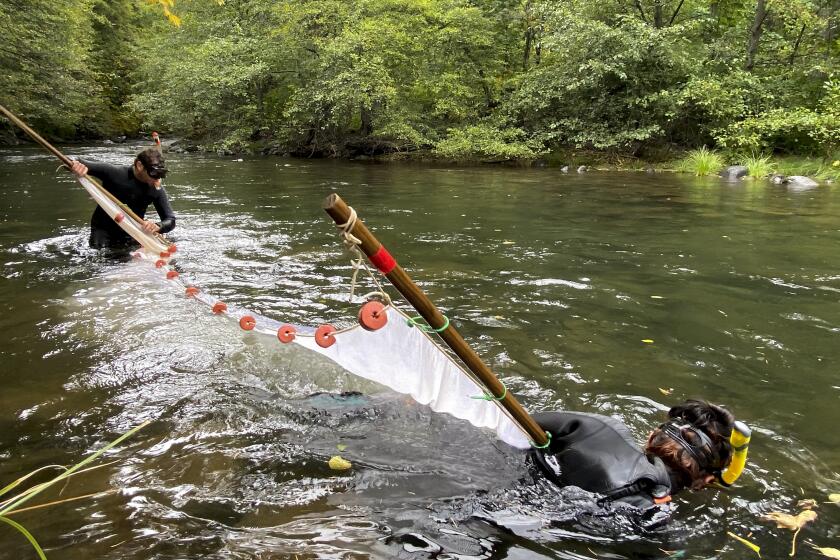No Maybes About It, Mabee Was the Boss
John Mabee had a lot of horses. Some said that he had just as many trainers.
Mabee, who died Wednesday night near Del Mar, the racetrack he loved and nourished, waded into racing by buying a couple of cheap yearlings in 1957, did a crash study of the breeding side of the business several years later and by the 1970s no one connected with his burgeoning racing and breeding operation doubted who was in charge. Short on stature, Mabee was a show-up guy who ruled with a big stick. In the insurance game, Mabee was a CEO who was known to sign every claim check, and in racing every one of his horses bore the owner’s fingerprints.
He made the rounds of trainers at Santa Anita, Hollywood Park, Del Mar and Northern California tracks, hiring Hall of Famers such as Charlie Whittingham, Ron McAnally and Richard Mandella to train his horses, but also giving the so-called little guys such as Ian Jory a chance.
Indicative of Mabee’s demanding ways was that Best Pal, his best horse, had three trainers. The first was Jory, only 31 when the 2-year-old gelding came to his barn in the spring of 1990.
If Mabee had known that Best Pal had much of a future, it’s unlikely the horse would have been sent to the little-known Jory.
But Best Pal and Jory were a good team, winning races from the start, and by the end of the year Mabee’s horse was one of the best juveniles in the country.
Trouble was, Best Pal picked the biggest race of his young career to run his worst race. Later he showed that by and large the deeper Eastern tracks would always be to his disliking, but in 1990, at the Breeders’ Cup Juvenile at Belmont Park, nobody knew.
Because Best Pal hadn’t been nominated as a foal for $500, Mabee--one of the founding directors and early rule makers of the Breeders’ Cup--had to pay $150,000 to buy his way into the Juvenile. At 9-5, Best Pal ran sixth, earning $10,000. Even for a plutocrat, that was a bottom line that was unacceptable.
Back in California, Best Pal rebounded to win the Hollywood Futurity under Jory, but the next year he had to hit the road again, finishing second in the Kentucky Derby and fifth in the Preakness. Jory didn’t know it, but the Silver Screen Handicap at Hollywood Park in mid-June was his Rubicon. Best Pal was second again, this time on a track he was supposed to prefer, and Gary Jones was hired to replace Jory.
“When John Mabee called and asked if I wanted Best Pal, I said yes,” Jones would say later. “Because if I didn’t take him, I knew he’d wind up with some other trainer.”
For Jones, Best Pal had some of his finest hours, including victories in the Pacific Classic, the Santa Anita Handicap and the Hollywood Gold Cup, but he ran 10th--after Mabee had paid a $360,000 supplement--in the 1993 Breeders’ Cup Classic at Santa Anita, and Jones’ days were numbered. When the horse came back from a needed rest in mid-1994, Mandella was the new trainer. There was one more Breeders’ Cup try--for another $360,000 supplement--and Best Pal earned $60,000 for finishing fifth at Churchill Downs.
Mabee’s impatience sometimes extended to the press. For one thing, he blanched at seeing Earl Scheib’s name in print, mainly because in 1988 the Los Angeles automobile painter tried to wrest away the racing license from the Mabee-led Del Mar Thoroughbred Club.
Scheib was the optimist’s optimist, applying for a 20-year lease even though he was well past 80.
As an insurer, Mabee’s bag was the lucrative workers’ compensation field, but he also underwrote horses, and in that realm was a step or two ahead of his clients. Alydar, in stud at Calumet Farm, was insured for a reported $36.5 million, and Mabee’s company was good for $5 million of it.
By the fall of 1990, Alydar was approaching his 16th birthday, and Mabee called J.T. Lundy, president of Calumet, to ask that the coverage be reduced to $2 million after the existing policy ran out in December. Alydar had been unconscionably overbred, which would devalue his yearlings, and Mabee knew this. Lundy wouldn’t budge, and in October, Mabee notified Calumet that he wouldn’t be insuring Alydar in 1991.
Alydar, in what was described as a stall accident, died under mysterious circumstances in November 1991. Lundy was found guilty in 2000 of bank fraud, conspiracy and bribery.
Mabee and the other insurers paid off. “We should not have ever paid the claim,” Mabee told The Blood-Horse magazine in 1998, “because our policy said that if he was insured for more than $21 million [by all companies], the policy was null and void. But they provided proof of loss, saying that the total was only $21 million.”
It was one of those rare times that John Mabee ever backed off.



